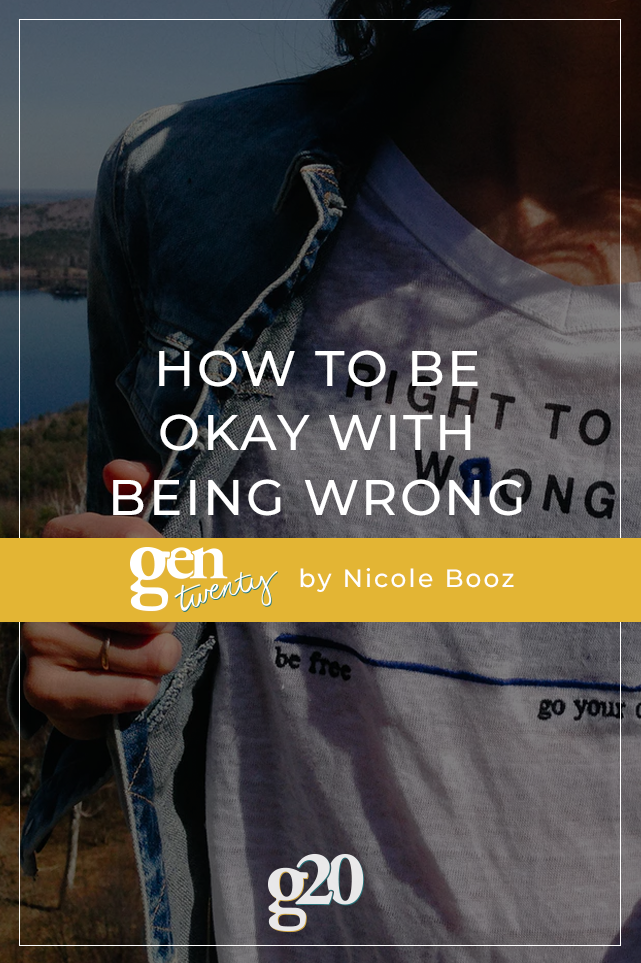
Have you ever wanted to answer a question in class or make a suggestion at work but didn’t because you weren’t sure of yourself? Yeah, me too.
Some people are able to answer questions and be wrong, make comments and be corrected or make a suggestion and be turned down with apparent ease. They adapt, take their new knowledge and move on.
On the other hand, we have people who debate with themselves about raising their hand, who fear embarrassment upon hearing the words “not exactly” or “good guess, but no” and who would rather keep quiet than make a mistake.
If you fall into the latter category, don’t worry: you are not alone.
Kathryn Shulz’s TED Talk titled “On Being Wrong” has over 4.3 million views to date (updated: January 2, 2019).
Shulz made a point that really resonated with me. She says being wrong doesn’t feel like anything – what we really fear is the realization of being wrong.
Essentially, you don’t know you’re not correct until someone points it out. But being wrong, accepting it, and adapting are all part of being human. We are fallible creatures; being wrong is a component of learning and leading a fulfilling life.
Do you also struggle with the feeling of being wrong? Here are three ways to cope with the feeling:
Don’t assume that being right is a good thing.
There is no denying that it feels downright amazing to get difficult questions right or ace an exam. But just because you received an ‘A’ doesn’t mean you earned it or even that you know what you are talking about. But is it such a good thing if you have an ‘A’ on paper but lack the knowledge to back it up?
One might say it is because so many things in our lives are based on how we look on paper. However, people who are successful know that knowledge can’t be faked, regardless of how you look on paper.
So, the next time you are hesitant to ask a question, put your hand up in the air and ask it. It’s likely that others are wondering the same thing or didn’t even realize that your question needed to be asked. Let your motivation be to enrich your own knowledge base.
[Tweet “What’s Right With Being Wrong”]
Build your opinion off of facts, not other opinions.
If you tend to seek other people’s opinions before you make a decision, you might be heading in the wrong direction.
It is difficult to choose things without wanting to consult others. We live in a “review” society where everyone wants to contribute their two cents and finding out that information is only a Google search away. Whether you are deciding which candidate to vote for or which vacuum cleaner to buy, make the effort to gather information first hand.
Read candidates’ speeches before reading reviews and commentaries. Ask a store expert for the information you seek instead of browsing websites for strangers’ (and typically novices) reviews.
When you gather information yourself, you will feel more concrete in your own decisions and opinions. And if someone disagrees with you, you can have a rich, lively discussion about it.
Remember that an expert in anything was once a beginner.
It takes a significant amount of time to become an “expert” in something.
According to Malcolm Gladwell, that time is approximately 10,000 hours or around 3.5 years if you worked on that single task or subject for 8 hours a day.
There is no need to be intimidated by professors or higher-ups in your company who seem to know everything. There is a reason they seem that way: mountains of time and persistence. They have spent years absorbing knowledge, making mistakes, and building routines to get where they are today.
So don’t put so much pressure on yourself — with time and effort, you will get there one day, too.
[Tweet “Remember that an expert in anything was once a beginner.”]
In summary, being wrong is a good thing–it reminds us we are only human. Such a beautiful and wonderful thing to be.
